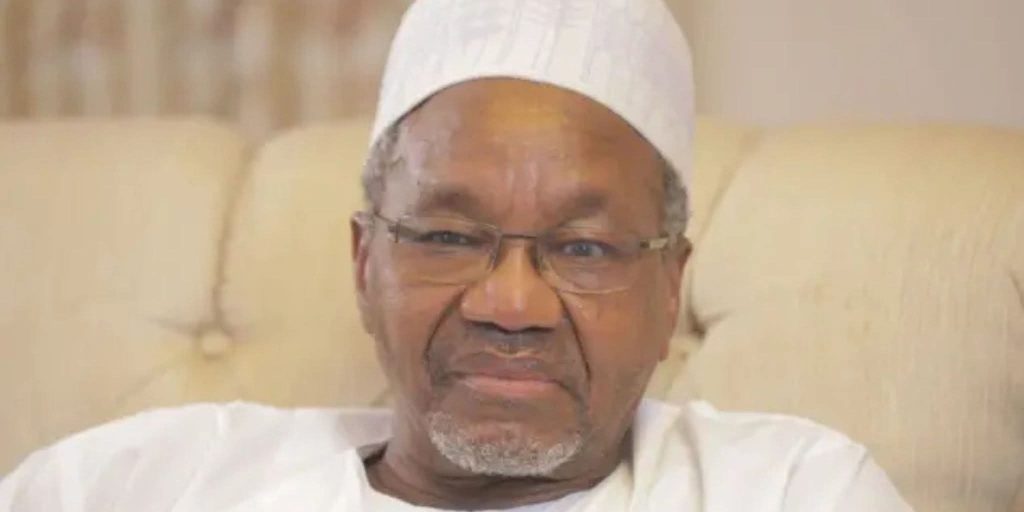News
Iran rejects Western calls to withdraw threats against Israel

Iran rejected Western demands, on August 13, 2024, to retract its threat to retaliate against Israel for the killing of Hamas leader Ismail Haniyeh in Tehran on July.
The Islamic Republic and its allies accused Israel of being responsible for Haniyeh’s killing on July 31.
This occurred during Haniyeh’s visit to Tehran for President Masoud Pezeshkian’s swearing-in. Israel has not responded.
Iran has vowed to seek revenge for the death.
This happened hours after an Israeli strike in Beirut killed a senior Hezbollah commander, a key Iran-backed militant in Lebanon.
Western diplomats have rushed to prevent major escalation in the Middle East, where tensions are high due to the Israel-Hamas war.
In a statement on August 12, 2024, the United States and its European allies called on Iran to de-escalate the situation.
The joint statement from Britain, France, Germany, Italy and the United States stated:
“We called on Iran to stand down its ongoing threats of a military attack against Israel and discussed the serious consequences for regional security should such an attack take place.”
The White House warned of possible “significant set of attacks” by Iran and its allies this week, with Israel agreeing.
The United States has sent an aircraft carrier strike group and a guided missile submarine to the region to support Israel.
Iran’s foreign ministry spokesman, Nasser Kanani, criticized the Western demand for Iran to de-escalate in a statement:
“The declaration by France, Germany and Britain, which raised no objection to the international crimes of the Zionist regime…
“Brazenly asks Iran to take no deterrent action against a regime which has violated its sovereignty and territorial integrity.”
“Such a request lacks political logic, flies in the face of the principles and rules of international law, and constitutes public and practical support for Israel.”
The Israel-Hamas war
The ongoing Israel-Hamas war erupted on October 7, 2023, when Hamas launched an unprecedented surprise attack on Israel from the Gaza Strip.
The attack involved a barrage of rockets and a coordinated ground assault, leading to widespread casualties and significant damage.
Israel responded with heavy airstrikes and a ground offensive in Gaza, aiming to dismantle Hamas’s military capabilities.
The conflict has caused thousands of deaths and injuries on both sides.
Additionally, a humanitarian crisis has emerged in Gaza due to the destruction of infrastructure and shortages of essential supplies.
The war has also led to regional instability, with skirmishes breaking out between Israel and Hezbollah in Lebanon.
Israel has accused Iran of supporting Hamas and Hezbollah, providing them with weapons, training, and financial aid.
This has escalated tensions between Israel and Iran, further complicating the conflict.
The assassination of Ismail Haniyeh
On July 31, 2024, Israel assassinated Ismail Haniyeh, the head of Hamas’s political bureau, in a targeted strike in Tehran, Iran.
Haniyeh had been a key figure in Hamas, overseeing its operations and maintaining its connections with Iranian officials and other militant groups in the region.
His assassination was a major blow to Hamas and a bold Israeli move to target its leadership beyond Gaza’s borders.
This assassination heightened tensions between Israel and Iran, as Iran has been a staunch supporter of Hamas.
The killing of Haniyeh was seen as a message from Israel that it would not hesitate to take action against those it deems a threat, regardless of their location.
This event further strained the already tense relations between Israel and Iran.
Iran ‘s response and rejection of Western Calls
Following the assassination of Ismail Haniyeh, Iran responded with strong rhetoric, vowing to retaliate against Israel for the killing.
Despite calls from Western countries for Iran to de-escalate and withdraw its threats, Iran rejected these appeals.
Furthermore, it insisted that it had a right to “punish” Israel for what it viewed as an act of aggression.
Iranian leaders framed the assassination as part of a broader struggle against Israel and its allies.
They signaled their intention to continue supporting Hamas and other groups opposed to Israel.
Iran’s refusal to back down has complicated the conflict, raising fears it could expand into a broader regional war.
Israel has remained on high alert, preparing for potential retaliatory attacks from Iran or its proxies in the region.
The Israel-Hamas war, driven by deep political and territorial disputes, has expanded into a regional conflict involving multiple actors, including Iran.
The assassination of Ismail Haniyeh by Israel and Iran’s subsequent refusal to de-escalate have intensified the conflict.
This situation raises concerns about further violence and instability in the Middle East.
The situation remains volatile, with the potential for significant developments in the coming weeks and months.
For Diaspora Digital Media Updates click on Whatsapp, or Telegram. For eyewitness accounts/ reports/ articles, write to: citizenreports@diasporadigitalmedia.com. Follow us on X (Fomerly Twitter) or Facebook









